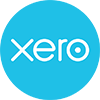Businesses will have another year to utilise the temporary full expensing of depreciating assets measure after it was extended to 30 June 2023.
The measure was originally introduced to encourage business investment in the backdrop of the COVID-19 pandemic and allowed eligible businesses to deduct the full cost of eligible depreciating assets of any value. Building and other capital works, as well as software development pools, do not generally qualify for full expensing. Neither do second-hand goods for certain entities. Special rules also apply to cars.
Our accountant and bookkeeper in Melbourne can provide you with more information about this measure. Read on to learn important details regarding eligibility.
Eligibility to Qualify
Businesses with an aggregated turnover below $5bn or those that meet an alternative eligibility test can deduct the full cost of eligible depreciating assets of any value that are first held and first used or installed ready for use for a taxable purpose from 6 October 2020 until 30 June 2023.
For small business entities with an aggregated turnover of less than $10m, the temporary full expensing of depreciating asset rules has been effectively replaced with simplified depreciation rules for any assets first held and used or installed ready for use for a taxable purpose between 6 October 2020 and 30 June 2023. This means that the full cost of eligible depreciating assets as well as costs of improvements to existing eligible depreciating assets can be fully deducted.
While businesses that are not classified as small business entities have the option of choosing to apply the temporary full expensing rules on an asset-by-asset basis, small business entities that use the simplified depreciation rules do not have that choice and are required to deduct the balance of its general small business pool in full. If a small business entity does not use the simplified depreciation rules, they have the choice to opt-out of temporary full expensing rules on an asset-by-asset basis.
What Doesn’t Qualify
Not all costs relating to assets qualify for temporary full expensing. For example, building and other capital works, as well as software development pools, do not generally qualify. Second-hand assets that would otherwise meet the eligibility conditions also do not qualify for temporary full expensing if the entity that holds them has an aggregated turnover of $50m or more.
Special rules also apply to cars, where the temporary full expensing is limited to the business portion of the car limit. For example, if a business entity purchases a car that costs $70,000 in 2021-22 that is used for both business (60% of the time) and personal purposes (40% of the time). The car limit for the 2021-22 year is $60,733. The temporary full expensing amount allowed would be $36,439 (60% of $60,733).
After the End Date
After 30 June 2023, temporary full expensing will cease to apply (unless there is another extension by the government). Any depreciating assets purchased after that date will have their decline in value worked out in accordance with either the uniform capital allowance rules or the simplified depreciation rules, depending on whether or not the business qualifies as a small business entity.
Need Help?
If you want to take advantage of temporary full expensing, contact Alexander Bright first to make sure the assets your business is planning to purchase will meet the eligibility requirements. As a trusted accountant offering business advisory services, we can also help you work out the temporary full expensing amount for any cars you are planning to purchase, as well as assisting you with other accounting services for your small business.
Managed Accounting Services
Our Newsletter
Article Categories
Select Month
 +61 3 8658 5821
+61 3 8658 5821




